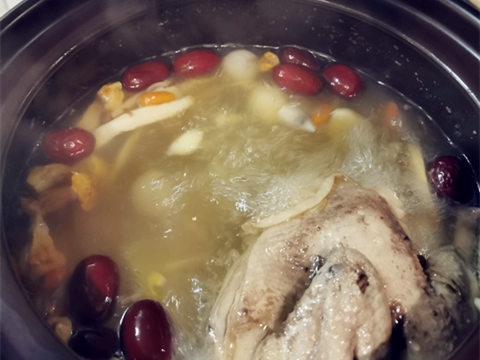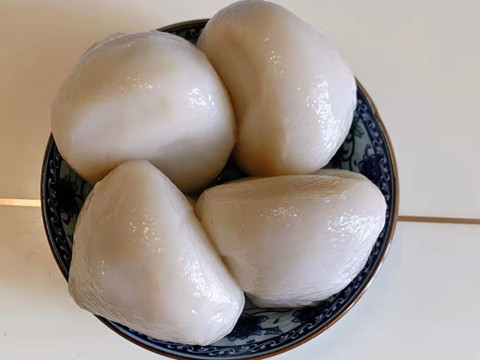Copy link succeeded! Now can share to friends.
Once again, the wind starts to become nippy. Slow, cold wind blows into the town. People begin to wear comfortable, warm clothes. Crystals slowly appear on the top of lakes, signaling the beginning of freezing. Beautiful fresh white crystals drop from the sky one by one. The Start of Winter立冬 (Lìdōng) arrives.
The Start of Winter (立冬 Lìdōng) is the 19th term in the 24 solar terms in the traditional Chinese Lunar calendar. It begins on the 7th of November and ends on the 22nd. The beginning of winter is the first solar term of winter. They will store the crops in their respective warehouses to prepare for the upcoming cold days.
Knowledge points
立 (lì) stand; let stand; establish, set
冬 (dōng) winter
立冬 (Lìdōng) the Beginning of Winter
To gain mastery of the knowledge point, let us delve in to the examples below.
There is a Chinese poem about Start of Winter
Lì Dōng
《立冬》
Beginning of Winter
Lǐ Bái Zhào Yànchūn yīng yì
李白 赵 彦春 英译
By Li Bai Tr. Zhao Yanchun
Dòng bǐ xīn shī lǎn xiě, hán lú měi jiǔ shí wēn
冻 笔 新 诗 懒 写,寒 炉 美 酒 时 温。
Writing brush frozen, not fain to write; Cold stove, warming fire, mellow wine.
Zuì kàn mò huā yuè bái ,huǎng yí xuě mǎn qián cūn 。
醉 看 墨 花 月 白, 恍 疑雪 满 前 村。
Drunk, I see my moonlit ink turn white; The village looms full of snow to shine.
Is this the start of winter?
In ancient times, Chinese people regarded the Start of Winter (立冬 Lìdōng) as the beginning of the winter. However, in terms of meteorology, The Start of Winter is not the beginning. Climate changes every year. Therefore Start of Winter (立冬 Lìdōng) does not necessarily mean it’s the beginning of the cold months. In addition, because of the vast geographical area of China, winter does not occur in all places simultaneously.
The Start of Winter (立冬 Lìdōng) is one of the “Four Beginnings” in the traditional Chinese lunar calendar. The beginnings of winter, spring, summer, and autumn are known as the “Four Beginnings.” These are all significant events in ancient times. People commemorate these events with festivals accompanied by vibrant practices.
In ancient times, Before the Start of Winter commenced, Emperors engage in a ceremony called “welcoming the winter.” During this time, the Emperor would shower and abstain from meat.
In the Northern part of China, they celebrate the Beginning of Winter with the “Small Spring Festival.” The occasion consists of a dumpling feast. They partake in the celebration along with the saying, “Eating dumplings when the winter begins helps one better resist the upcoming bitter cold.”
The Start of Winter is a predominant event in China. Not only is it welcome with festivals, but it also comes with various practices and traditions. Let’s learn more details!
Nourishing the Winter 养生 (Yǎngshēng )

There is a mandatory tradition during the first day of 立冬 (Lìdōng). They call the custom “nourishing the winter.” People from different places such as Fujian, Guangdong, and Taiwan provinces participate in this practice. Its premise is simple. For people’s bodies to prepare for the long cold months, they partake in energy-dense stewed foods. The delicacies during this time serve varying main courses. Some eat chicken, duck, beef, mutton, and fish with Traditional Chinese medicines. These Chinese medicines are Angelica, Ligusticum Wallichii, Chinese herbaceous peony, and Rehmannia Glutinosa Libosch to enhance the sustenance of the delicious meals.
Eating tuanzi in Wuxi 吃团子 (Chī Tuánzi)

Another alluring tradition held on the first day of 立冬 (Lìdōng) occurs in Wuxi. The people here have a custom of eating tuanzi. A tuanzi is a delicious and tender glutinous Chinese delicacy. They create it by wrapping sweet bean paste, radish, or lard with rice flour, then steaming it. Most rural residents make tuanzi at home. However, urban residents buy ready-made tuanzi.
Eating dumplings 吃饺子 (Chī jiǎozi)

Another meal that people eat in line with 立冬 (Lìdōng) is dumplings. The origin of this practice dates back to the end of the Eastern Han Dynasty (AD25-220). During this time, people in Henan province suffer from a typhoid epidemic and extreme frostbite due to the cold temperature. A legend has it that “Medical Saint” Zhang Zhongjing solved this afflictive dilemma.
He prepared a hot meal consisting of mutton, hot peppers, and herbs to help people adapt to the cold. He wrapped these into ear-shaped dough skin. That meal saved the lives of people in the Henan province.
Since then, they passed the knowledge of making dumplings from generation to generation. The practice endured to this day. Dumpling has become an integral part of 立冬 Lìdōng that they have a saying for it that goes “Eat dumplings on Start of Winter Day or your ears will be frostbitten.”
Worship and offering
The Start of Winter is incomplete without people getting in touch with their spirituality.
In ancient China, at the peak of the agricultural era, people welcome 立冬 (Lìdōng) with worship. People would present offerings as the embodiment of gratitude for a bountiful harvest. They also burn incense and offer food from the storage to pay tribute to the deceased.
Here are related sayings of Start of Winter
Lìdōng dǎ ruǎn zǎo ,luóbo yì qí shōu
立冬 打 软 枣,萝卜 一 齐 收。
Start of winter dozen soft date, turnip gather together.
Dōng zāi shù ,hǎo chéng huó ,kānguǎn bù hǎo sǔnhuài duō
冬 栽 树,好 成 活, 看 管 不 好 损坏 多。
Winter planted trees, good survival, not good care damage more.
Dōngjì duō tiāo yí dàn tǔ ,xiàtiān shǎo dān yí fèn yōu 。
冬季 多 挑 一 担 土,夏天 少 担 一 份 忧。
Pick more soil in winter and less worry in summer.
Dōngjì xiū shuǐ lì ,zhèngshì hǎo shí jī 。
冬季 修 水 利,正是 好 时 机。
Water conservancy in winter is a good time.
Your first 1-on-1 Chinese lesson offer